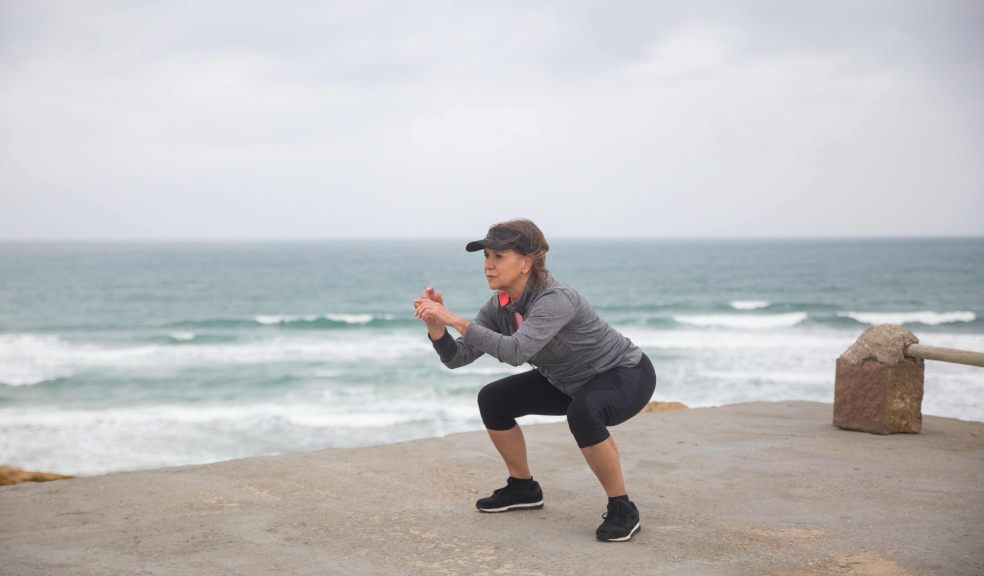
Fit Tips for Women over 40
I was recently asked by a client what my biggest fitness tips are for women over the age of 40. The majority of these tips are relevant to people of all ages and genders, so take a look!
Sleep
There was a time when sleep was seen as an indulgence, and successful people would boast about how little they slept. In recent years, fortunately, this has changed. Sleep is fundamental to our health, and should be prioritised for a long, happy and healthy life.
- On average, people need between 7-9 hours of sleep every night. Preferences because we’re not all robots built on the same factory line.
- Aim to follow a consistent pattern with your sleep, dropping-off and waking at similar times every day.
- Get into a good bedtime routine. This means beginning to wind down a few hours before bedtime. There are no hard and fast rules, but try to reduce bright lights, action and excitement. For example, read a book or watch a nature documentary with a dimmed television screen rather than a horror film in full brightness with the volume turned up.
- Don’t get sucked into the alcohol and caffeine cycle. I’ve trained so many people who feel that they need alcohol to wind down in the evening. They then wake up groggy and desperately need caffeine to get them going.
Workouts
It’s so important to be active in all periods of your life, however, the type of activity varies slightly. If you struggle to stay active on your own, consider enlisting the help of a personal trainer.
- Stay strong. Age-related muscle loss (sarcopenia) typically starts in our 40s and significantly reduces quality of life. The good news is that it’s not hard to maintain muscle mass, you simply need to perform activities that require strength, like Pilates, circuit training or weightlifting. You don’t have to train like a bodybuilder, regular, sensible training will make a huge difference.
- Perform activities that make your slightly breathless. It’s also important to perform aerobic exercises, like brisk walking, running, cycling or recreational sport, for cardiovascular health, mental well-being, and weight management. From my experience, most people try think this style of activity needs to be harder than it is. You do not have to train for a marathon or join a CrossFit class, and often aerobic activity can be sneaked into a routine, like briskly walking for 20 minutes after dropping the children off at school or cycling to work.
- Don’t neglect other aspects of fitness. With fitness, we tend to focus on strength and aerobic training, but don’t forget other things like flexibility, balance and basic agility. There are also lots of psycho-social benefits to team sports, so don’t be afraid of playing social netball, softball or anything else that takes your fancy.
- In terms of quantity, there are very good and very simple guidelines, like aim to take 10,000 steps every day. In addition, I recommend aiming to perform structured activity 3 times per week. However, it’s worth noting that for some people who are very inactive, just performing 1 structured training session per week is a big move in the right direction.
Mindfulness
The importance of mindfulness has become more well-known in recent years. It’s about having moments during the day where you relax your mind and pay attention to your thoughts, feelings and surroundings. It’s connected to good mental health.
- You can incorporate deliberate mindfulness activities into your routine, like meditation and yoga classes.
- You can also engage in activities that have incidental mindfulness benefits, like a walk in the countryside, a bike ride, gardening or other relaxing hobby.
Nutrition
Nutrition can be made very complicated (and sometimes needs to be) but can also be very simple. Here are some simple tips:
- Improve the quality of what you eat. Aim to consume less processed and more natural foods, like fruit, vegetables, legumes, nuts, seeds, wholegrains and unprocessed fish and meat. If the ingredients on a food item read like a chemistry experiment, consider whether there is a less-processed alternative.
- Control the quantity of food eaten. There’s no avoiding the fact that if you want to stay at a health weight, you need to control how much you eat. This is made easier by managing the quality of what you eat.
- Find out what works for you. Everyone’s slightly different when it come to nutrition. Some people like to eat little and often, others like to skip breakfast and eat a big lunch and dinner. I’ve trained some people who enjoy a high carb diet, and others who eat lots of high-protein and high-fat foods. There are individuals with intolerances too, sometime severe, sometimes more subtle. Take the time to work out what’s best for you, because we’re not all the same.
I hope these tips help you lead a happier and healthier life!
Tom is an Exeter personal trainer. He's also a running coach who trains athletes, sportspeople and recreational runners.

















